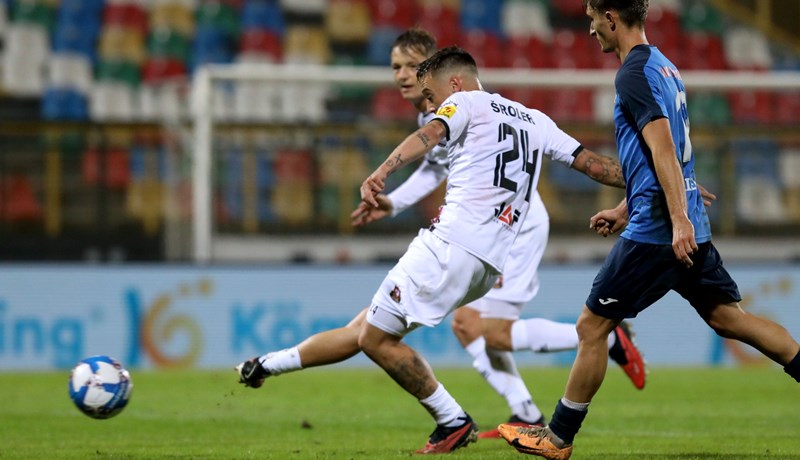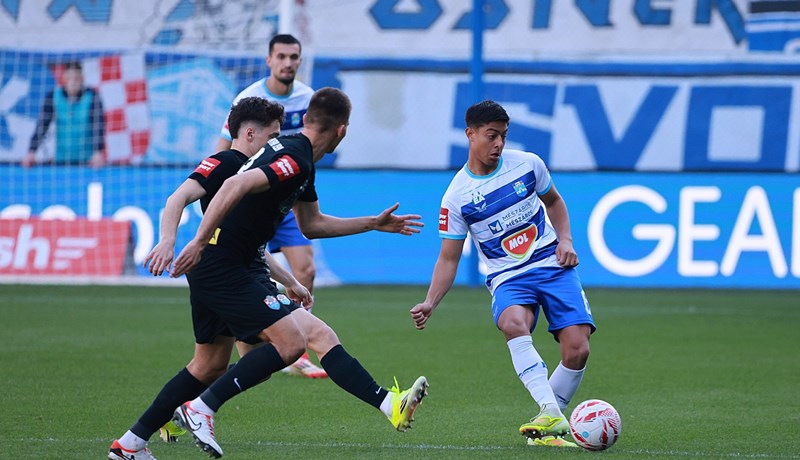The 131st AGM of The International FA Board (The IFAB) held in London on 3 March 2017 approved ‘a second stage’ of changes and clarifications to the Laws of the Game for 2017/18, effective from 1 June 2017.
Replace ‘infringement/infringe’ etc. with ‘offence/offend’ etc.
Law 1 – The Field of Play
• Artificial turf may be used for the lines on a grass field if not dangerous
Law 3 – The Players
• National FAs can allow a maximum of five substitutions (except at the top level)
• National FAs can now allow return substitutions in youth, veterans and disability football
• Clearer wording for the substitution procedure
• A substitution made at half-time without informing referee is not a caution (YC) offence
• Changing the goalkeeper at half-time without informing the referee is not a caution (YC)
• Player who enters the field of play without the referee’s permission (if it is required) and interferes is punished with a direct free kick (FK)
• Team scoring a goal with an extra person on the field is punished with a direct free kick (FK)
Law 4 – The Players’ Equipment
• Goalkeeper caps are not included in the list of restrictions on head covers
• Players are not permitted to wear/use any electronic or communication equipment (except electronic performance and tracking systems/EPTS); technical staff may only use communication equipment for safety/welfare issues
• All EPTS equipment must bear a minimum safety standard mark
Law 5 – The Referee
• Important statement that decisions made by match officials must always be respected
• National FAs can allow temporary dismissals (sin bins) for some/all cautions (YC) in youth, veterans, disability and grassroots football (Guidelines will be published)
• A medical official guilty of a dismissible offence may stay/treat players if no other medical person is available for the team
Law 7 – The Duration of the Match
• A short drinks break is permitted at half-time of extra time
Law 8 – The Start and Restart of Play
• Kicker can stand in the opponents’ half at the kick-off
Law 10 – Determining the Outcome of a Match
• Extra time must be two equal periods, maximum 15 minutes each
Kicks from the Penalty Mark (KFPM)
• Corrected wording for goalkeeper who is unable to continue
• Excluded player may replace a goalkeeper even if team has used all its permitted substitutes
• Kicker may not play the ball a second time
• A goalkeeper who offends and the penalty has to be retaken must be cautioned (YC)
• If the kicker offends the kick is forfeited (recorded as ‘missed’)
• If the goalkeeper and kicker offend at the same time:
• retake and two cautions (YCs) if no goal is scored
• if a goal is scored the kicker is cautioned (YC) and kick recorded as ‘missed’
Law 11 – Offside
• An offside player can be penalised if the ball rebounds/deflects off a match official
• Addition of ‘attempts to’ to the definition of a ‘save’
• Offside guidance:
• player in offside position who impedes an opponent must be penalised
• player in offside position who is fouled before committing an offside offence (foul penalised)
• player in offside position who is fouled when already committing an offside offence (offside penalised)
Law 12 – Fouls and Misconduct
• Verbal offences are punished with an indirect FK
• If an advantage is played for a sending-off (RC) and the player commits another offence, that offence is penalised
• A player ‘stopping a promising attack’ in the penalty area is not cautioned (YC) if the offence was an attempt to play the ball
• Addition to list of cautions (YCs) for a ‘denying an obvious goal-scoring opportunity’ (DOGSO) offence in the penalty area which was an attempt to play the ball
• Caution (YC) for goal celebration which causes safety/security issue
• If player moves diagonally to pass the last defender/goalkeeper this can still be a DOGSO
• Clearer DOGSO wording for a penalty area offence which is an attempt to play the ball
• Entering the field of play without permission and stopping a goal or DOGSO is a sending-off
• Off-field offence by/against a player involving opposing player/substitute/team official (or against a match official) is penalised by FK on the boundary line if the ball is in play
• Direct FK for throwing or kicking ball/object onto the field to interfere with play/someone
• Direct FK on boundary line for throwing or kicking ball/object at someone off the field
Law 13 – Free Kicks
• Attacker in or entering the penalty area before a defensive FK has left the area cannot play or challenge for the ball until it has been touched by another player
Law 14 – The Penalty Kick
• Kicker must be clearly identified
• If the goalkeeper and kicker offend at the same time:
• retake and two cautions (YCs) if no goal is scored
• if a goal is scored the kicker is cautioned (YC), kick recorded as ‘missed’ and indirect FK
• Goal can be awarded after outside interference if the ball still goes in the goal
Law 16 – The Goal Kick
• Attacker entering the penalty area cannot play or challenge for the ball until it is touched by another player
![[UŽIVO] Oslabljeni Varaždinci i Splićani bore se za važne bodove u 24. kolu SuperSport HNL-a](/photos/_resized/518/92/0000000000518921_400_230_cut.jpg)
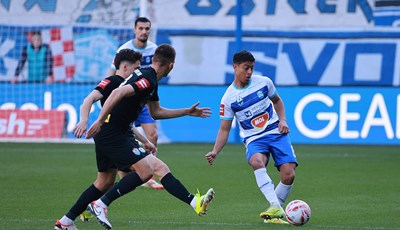


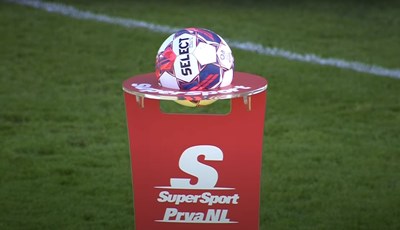
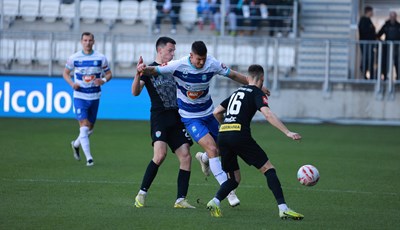
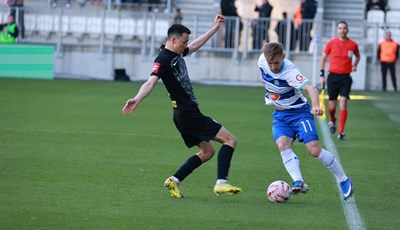
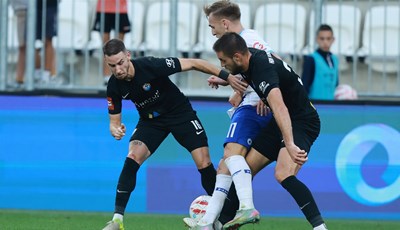

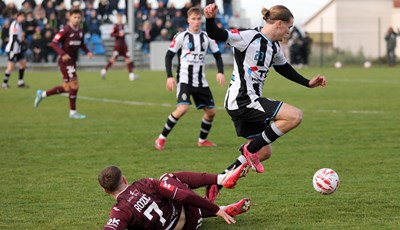
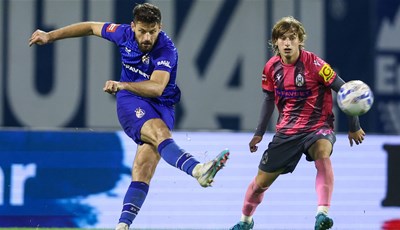

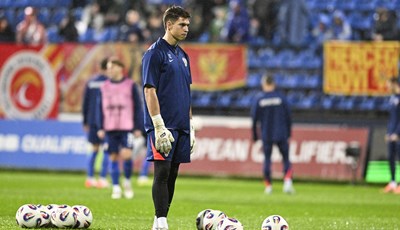
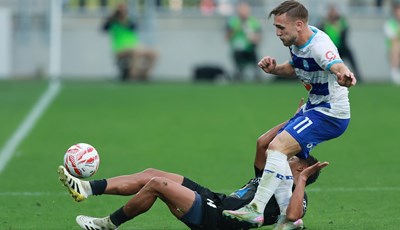

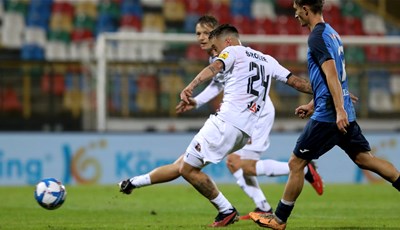



![[UŽIVO] Oslabljeni Varaždinci i Splićani bore se za važne bodove u 24. kolu SuperSport HNL-a](/photos/_resized/518/92/0000000000518921_800_460_cut.jpg)

